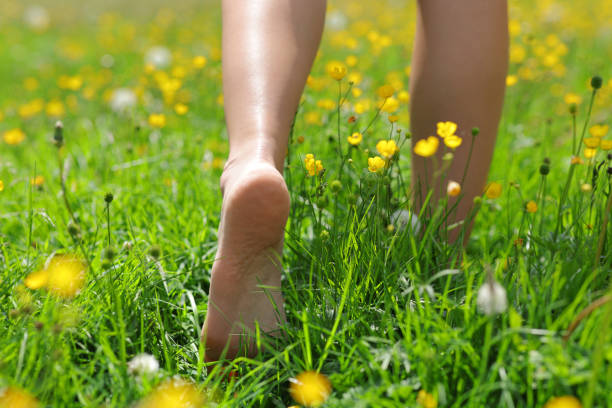Rediscovering Health: The Role of Grounding in Wellness
Introduction: Have you ever thought about the way you connect with the earth? Grounding, also known as earthing, is a health strategy that's gaining attention, promising intriguing benefits from improved sleep to enhanced immune function. But what does science say about this practice? Let's explore the evidence, history, and potential health advantages of grounding.

The Roots of Grounding
Grounding is an age-old practice, with roots traced back to indigenous cultures worldwide. These communities believed in the earth’s healing power, often walking barefoot or sleeping on the ground to absorb its energy. Despite its historical significance, grounding has only recently been subjected to scientific scrutiny. Preliminary studies suggest it could have real health benefits, from reduced inflammation to better sleep, although more research is needed.
Grounding in Today’s Health Landscape
In a world where wellness trends come and go, grounding stands out for its simplicity and accessibility. It involves making direct skin contact with the earth’s surface, such as walking barefoot on grass or sand. Current health trends are leaning towards natural, holistic practices, and grounding fits well within this paradigm. Researchers are exploring how it could influence various health aspects, from stress management to cardiovascular health.
Unpacking the Science of Grounding
The theory behind grounding rests on the earth’s negative charge, which proponents believe can neutralize free radicals in our bodies, combatting inflammation. Although this theory is still being tested, some studies suggest grounding may have a positive impact on conditions linked to inflammation, such as heart disease, arthritis, and even depression. It is also hypothesized to improve sleep by synchronizing our biological rhythms with the earth’s natural electromagnetic field.
Potential Challenges and Questions
While grounding is free and readily available, it does pose challenges. Urban living often means limited access to natural environments, and concerns about outdoor pollutants or parasites may deter some people. Additionally, while preliminary research is promising, it’s essential to remember that grounding is not a cure-all and should be part of a broader wellness strategy.
Grounding: Fresh Perspectives on an Age-Old Practice
- Grounding may benefit heart health: A 2013 study found that grounding could improve blood viscosity, a risk factor for heart disease.
- Night-time grounding may improve sleep: Research suggests grounding during sleep can improve sleep quality and reduce cortisol, a stress hormone.
- Grounding could help manage stress: It’s thought that grounding’s impact on our biological rhythms could help manage stress.
Concluding Thoughts
The practice of grounding offers a fresh perspective on health and wellness, reminding us of our innate connection with the earth. While it’s not a magic bullet for health, its potential benefits, coupled with its simplicity, make it an intriguing area of exploration. As we continue to seek out innovative wellness strategies, grounding serves as a testament to the power and potential of our natural world.






